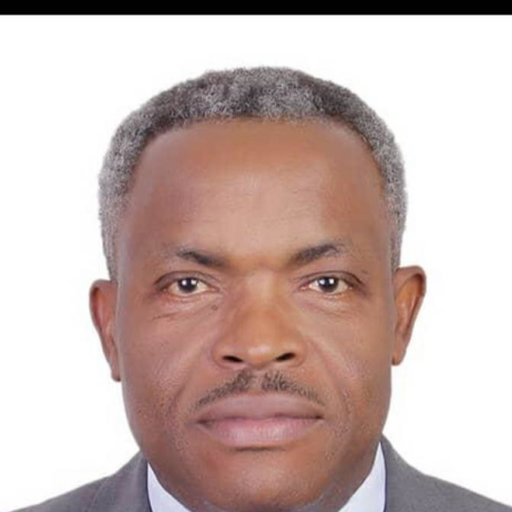
The national coordinator of the National Tuberculosis and Leprosy Control Program (NTBLCP), Dr. Chukwuma Anyaike, has said that meaningful community engagement is critical to improving the reach and the sustainability of tuberculosis (TB), service and accelerating progress toward ending TB in the country by 2030.
He said this during the flag-off of community outreach, marking the 2022 National Tuberculosis Screening & Testing at the palace of the chief of Gishiri community yesterday (August 4, 2022) in Abuja.
Science Nigeria reports that the National TB toll-free call centre (3340) has continued to make significant contributions to giving correct and prompt TB information, referral for TB testing and support for TB treatment adherence.
The call centre is linked to the “Check Am O” Unified TB campaign, the hotline is promoted on radio, television, social media and all SBC materials including tee-shirts and reflector jackets.
Calls are received from all states by trained agents who attend to enquiries on various topics around TB, including causes, symptoms and referral to the nearest testing centres.
The NTBLCP is supported by the United States Agency for International Development (USAID) through Breakthrough ACTION-Nigeria (BA-N) to manage the toll-free hotline. So far, from January to June 2022, the call centre has received 51,266 calls, 27,771 of which were unique, 759 were referred for testing and 108 self-reported as positive.
Also, the call centre has contributed tremendously to the success of the DAT project by providing technical support for the ever-well platform, follow-up, survey calls and SMS enlightening and encouraging patients on the need to adhere to their medication and to continue sending their adherence codes to 3340 after taking their medications.
The latest innovation of the call centre is the *3340# USSD service, which is now available on all networks.
Anyaike said: “We are here to tell the community that TB is a very big problem and is killing several people. It is not a respecter of persons or status. It is in the air [and this] makes it more dangerous”.
He stated that, annually, on March 24, NTBLCP has this type of gathering but decided not to wait till March 24 to bring interventions.
“I want to encourage the community to ensure that anyone who has been tested positive for TB should be encouraged to take their drugs.
“The community must work hand-in-hand to ensure the person takes their drug so that they don’t infect others.
“Also, anybody that has received treatment should not be discriminated against. Once a person is cured, he or she cannot pass it [on]to others,” he said.
Earlier, the national professional officer, Tuberculosis Nigeria, WHO, Dr. Enang Oyama, said that TB is a disease of public health importance.
“We have come to help the community to see that they can prevent and take care of persons that might have TB. TB is affecting everyone, and no one is spared,” Oyama said.
He added that it affects the community socially and economically.
“We are here to create awareness about TB. We are also educating them on how to access care and treatment,” he said.
The head of advocacy communication and social mobilisation (ACSM), Mrs. Itohowo Uko said they were in the community to sensitise the members of the community on TB because they know that TB has killed many people in several communities. But, erroneously, many believe it is tied to witchcraft.
Uko said that TB can affect everybody because it can be carried by air.
“We are here to educate the community to be able to look for the right solution for TB problems.
“We are saying that TB is in our communities. We have people that will screen everyone [and] test the people for free. Testing and treatment for TB are free. No one needs to die of TB because it is treatable and curable.
“Also, there are people here to educate the people of the basic symptoms of TB so they (community members) can refer anyone with the symptoms to the health facility. People will also be tested for COVID-19. There are also vaccines available,” she said.
She, however, advised the community not to discriminate against people with the disease.
“The community head and the entire community need to wage war against TB discrimination so that people can freely go for testing if they have been coughing for more than two weeks,” she advised.
In his comments, the chief of Gishiri community, Mr. Bala Akusu said: “We are happy with this programme by the Buhari-led administration. In the community, every ethnic group is represented – Fulani, Yoruba, Igbo, Gbagi and other tribes”.
Aksu said that this intervention would reduce the disease burden of TB in the community.
“Also, our primary health centre is functional,” he added.
Recall that the WHO said that TB is the 13th leading cause of death in the world and the second leading infectious killer after COVID-19 and HIV/AIDS.
In 2020 about 6 in every 10 persons infected with TB were male, with an estimated 10 million people (5.6 million men, 3.3 million women and 1.1 million children) testing positive.
A total of 1.5 million people were lost to TB in the year. TB is an infectious disease caused by mycobacterium tuberculosis bacteria and affects the lungs of those it infects, but is curable and preventable. As an evening airborne disease, it spreads through cough, sneezing, or saliva. The disease affects all age groups.
Meanwhile, fear of the social stigma associated with a TB diagnosis makes some Nigerians delay getting tested for the disease.

